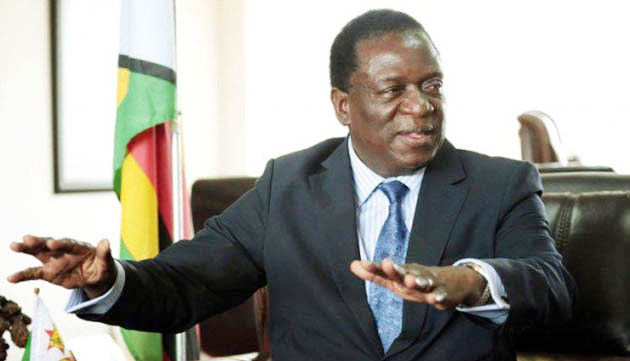Do schools have right to withhold exams results?

David T Hofisi Correspondent
Last week, Primary and Secondary Education Deputy Minister, Professor Paul Mavhima said schools that are withholding exams results from pupils over non-payment of fees are breaking the law.
The minister however, cautioned that parents should not ride on that legal provision to avoid paying school fees.
This followed a letter written to Glen View High 1 School by the Zimbabwe Lawyers for Human Rights giving the school an ultimatum to release Advanced Level results for a pupil whose parents were in school fees arrears.
This article outlines the legal consequences arising from the practice of withholding examination results for non-payment of school fees.
The practice of withholding examination results for debt collection, in its more prevalent format, consists of schools (and other institutions of learning) denying a former student/pupil access to their examination results pending full payment of arrears.
In other words, the future of the child is leveraged on the parent’s/legal guardian’s ability to pay the outstanding debt.
Pending such payment, the child’s education is left in a state of limbo and their ability to pursue further studies forestalled. The reasons why such a method of debt collection is objectionable must surely be apparent.
Legally, the general rule is that rights and obligations from a contract only attach to the specific parties to the agreement.
Only in exceptional circumstances can these flow to or be demanded from/through a third party — and this is not one of those circumstances.
Debt recovery which is predicated on the future of a party who, whilst subject to the agreement, has no capacity to contract and is still a legitimate recipient of parental care, cannot be countenanced at law.
The child is not a party to the agreement. Any breach of contract must be remedied in respect of their parent/legal guardian.
Exposing the child to needless prejudice is beyond the dictates of contract law and is unsustainable given the child’s inability to enter into contract.
This view found favour with the High Court of Zimbabwe in the case of Idah Nyabeza and Munyaradzi Murenga vs The State [2011] ZWBHC 1. The court held as follows:
“When a parent and/or guardian . . . secures a place for a child at a school or tertiary institution . . . a contract is entered between the said institution and the parent with regards to the payment of fees. The said contract can either be express or implied. The parent undertakes to pay all fees which the institution levies against the student from time to time. Failure by a parent to do so results in the institution of legal proceedings against the parent to recover the said fees. No valid legal steps or proceedings can be taken against a minor who has no contract with the institution to pay fees, to do so is an abuse of authority on the part of the institution which is an undue pressure to enforce payment of fees using pupils as pawns. This is, therefore, unlawful.”
In other words, the court restated the principle of contract law that the offending party must be held accountable. The efforts to recover debt cannot be extended to the minor child, as the court went on to highlight:
“The court takes judicial notice that for a long time now, pupils continue to be shut out of school premises, forced to do manual work and have their school results withheld in order to force parents to pay outstanding fees. Such action by institutions is illegal as it contravenes section 7(1) of the Children’s Act supra. While the authorities are entitled to their fees, they should resort to a legal way of recovering fees from the pupils or students, through their parents.”
Thus the court held that withholding a child’s results to force the parents to pay outstanding fees not only befouls the law of contract but amounts to a violation of the Children’s Act.
Section 7 (1) of the Children’s Act protects children and young persons from ill-treatment and neglect. Therefore the practice of withholding examination results amounts to ill-treatment and neglect of children contrary to the statute law of Zimbabwe.
It must be noted that this judgment was delivered prior to the enactment of the current Constitution.
The current Constitution broadened the human rights matrix with a new raft of entitlements. Among the new constitutional rights introduced is the right to education under Section 75 of the Constitution, which is reinforced by the elaboration of the rights of children under Section 81.
Not only do children have a right to education, but the protection from maltreatment and abuse has also been elevated to a constitutional right.
Even more instructive is the injunction under Section 81(2) that the best interests of the child are paramount in every matter concerning a child.
This may only be limited by a law of general application which is, among other factors, fair, reasonable, necessary and justifiable in a democratic society. Needless to state that a school policy/directive/action of the sort that withholds examination results does not amount to a law, let alone a law of general application.
This entire gamut of constitutional entitlements redounds in favour of the rights of the child, more so if one is mindful of the national objectives of the Constitution which require that children have access to appropriate education and training and be protected from maltreatment and abuse.
The Convention on the Rights of the Child (CRC), to which Zimbabwe is a party, emphasises the need for young persons to reach the highest level of education of which they are capable.
Most scholars agree that the CRC has now attained the status of customary international law — and customary international law is part of Zimbabwean law in terms of the Constitution.
The converse argument can be made and is indeed apposite; schools require resources to fulfil the constitutional obligation to provide education. In fact, it could further be argued that the failure to pay for education by parents/legal guardians undermines the rights of students/pupils whose parents are indeed meeting their financial obligations.
It is conceivable that schools would argue, and legitimately so, that this has the effect of forcing those who are paying fees to subsidise for those who are not paying, resulting in an overall lowering of the standard of education.
Thus recovery of debt would be instrumental in ensuring resources needed to uphold the right to education are provided.
Indeed, unlike the South African Constitution which has been held to provide for immediate realisation of the right to basic education, such claim is more difficult to sustain in Zimbabwe due to the 4th Subsection to Section 75 of the Constitution.
That subsection makes the right to education subject to, and implementable within, the limits of available resources; acknowledging the primacy of resources for the fulfilment of the right to education under Section 75.
This argument has its own merits, but is insufficient for purposes of creating a legal basis to recover a debt through the withholding of examination results from a minor child/young person. Whilst schools and other institutions have a legitimate right to recover debts from responsible persons, this cannot be done through and at the expense of children/young persons.
This claim is not indistinct from that made by the Constitutional Court regarding child marriages to the extent that children cannot enter into contracts. They can neither marry nor pay their own fees nor indeed be held accountable and made to suffer for the failure by their guardians to pay their fees. That responsibility lies squarely with their legal guardians whom the schools must pursue without unduly hindering the child’s ability to pursue their own academic studies.
The primacy of education in a well-functioning democracy has long been accepted and the nation’s future must not be jeopardised by way of unconstitutional debt recovery schemes.
- David T Hofisi is a Senior Projects Lawyer with Zimbabwe Lawyers for Human Rights. Feedback: [email protected]·











Comments